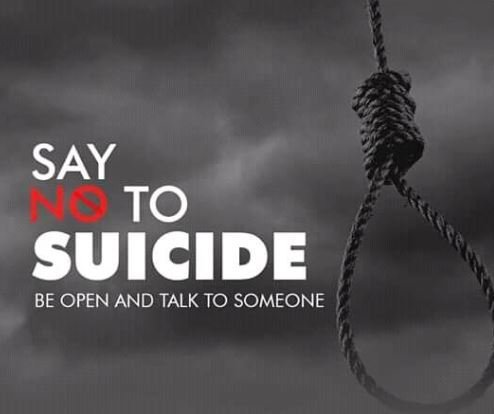Suicide, a tragic act that has become increasingly prevalent globally, is a complex issue with multifaceted causes. In Nigeria, a country steeped in cultural values that prioritize family, community, and resilience, the act of taking one’s own life can be seen as a betrayal of these principles.
This article explores seven compelling reasons why suicide is not the best answer for a Nigerian, delving into cultural, religious, and psychological perspectives.
1. The Value of Life in Nigerian Culture
Nigerian culture places a profound emphasis on the sanctity of life. From birth, individuals are taught to cherish their existence and that of others. This reverence for life is deeply ingrained in various aspects of Nigerian society, including traditional beliefs, religious practices, and social interactions. Suicide, as a deliberate act of ending one’s life, directly contradicts this fundamental cultural value.
2. The Impact on Family and Community
In Nigeria, family is considered the cornerstone of society. Suicide has a devastating impact on families, causing immense grief, shame, and stigma. The loss of a loved one to suicide can lead to emotional turmoil, financial hardship, and social isolation. Furthermore, the act of suicide can have ripple effects throughout the community, affecting friends, neighbors, and acquaintances.
3. Religious Beliefs and Afterlife
Nigeria is a predominantly religious country, with a significant Muslim and Christian population. Both religions emphasize the importance of life and the afterlife. Suicide is often viewed as a sin or violation of God’s will, with potential consequences in the hereafter. These religious beliefs can provide individuals with a sense of purpose and hope, discouraging them from resorting to suicide.
4. The Availability of Help and Support
In recent years, there has been a growing awareness of mental health issues and increased efforts to provide support services in Nigeria. Various organizations and individuals are working to destigmatize mental health and offer counseling, therapy, and crisis intervention. Reaching out for help is a courageous step, and there are resources available to support individuals who are struggling with suicidal thoughts.
5. The Potential for Recovery
It is important to remember that suicidal thoughts are often temporary and can be overcome with the right support. There is hope for recovery, and individuals can learn to cope with their challenges in healthy and constructive ways. Seeking professional help can provide individuals with the tools and strategies to manage their mental health and prevent suicide.
6. The Importance of Hope and Resilience
Nigerians are known for their resilience and ability to overcome adversity. Even in the face of immense challenges, it is possible to find hope and a reason to keep going. Cultivating a positive mindset, focusing on personal strengths, and seeking support from loved ones can help individuals to build resilience and find meaning in their lives.
7. Alternatives to Suicide
There are always alternatives to suicide. Individuals struggling with suicidal thoughts can explore various coping mechanisms, such as exercise, meditation, journaling, or spending time in nature. Engaging in activities that promote well-being and provide a sense of purpose can be helpful in reducing suicidal ideation.
Conclusion
Suicide is not the best answer for a Nigerian. It contradicts cultural values, has devastating consequences for families and communities, and violates religious beliefs. However, there is hope and support available for individuals who are struggling with suicidal thoughts. By seeking help, embracing resilience, and exploring alternatives, Nigerians can overcome challenges and find meaning in their lives.
Suicide Prevention Hotlines in Nigeria-
Here are some of the suicide prevention hotlines available in Nigeria:
- The Jed Foundation: +234 815 808 0000
- The 988 Suicide & Crisis Lifeline: +234 700 988 0000
- The Distress Helpline: +234 803 700 1111
- The Mental Health Support Group: +234 809 000 0000
If you are experiencing suicidal thoughts or are concerned about someone who may be, please reach out to one of these hotlines immediately. These lines provide confidential and compassionate support, and there is help available.













